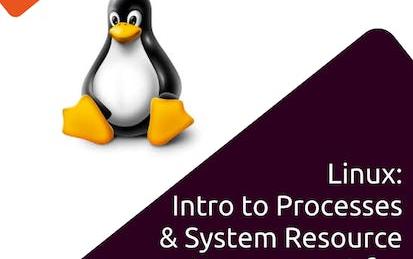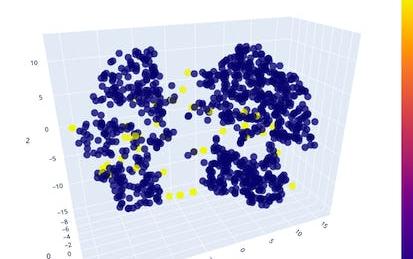

Our Courses

Global Warming II: Create Your Own Models in Python
This class provides a series of Python programming exercises intended to explore the use of numerical modeling in the Earth system and climate sciences. The scientific background for these models is presented in a companion class, Global Warming I: The Science and Modeling of Climate Change. This class assumes that you are new to Python programming (and this is indeed a great way to learn Python!), but that you will be able to pick up an elementary knowledge of Python syntax from another class or from on-line tutorials.
-
Course by

-
 Self Paced
Self Paced
-
 32 hours
32 hours
-
 English
English

Displays
This course can also be taken for academic credit as ECEA 5607, part of CU Boulder’s Master of Science in Electrical Engineering degree. Displays Course Introduction The course will dive deep into electronic display devices, including liquid crystals, electroluminescent, plasma, organic light emitting diodes, and electrowetting based displays.
-
Course by

-
 Self Paced
Self Paced
-
 8 hours
8 hours
-
 English
English

Sustainable Innovation for Subsistence Marketplaces
This course focuses on understanding subsistence marketplaces and designing business solutions for the billions of people living in poverty in the global marketplace. To develop understanding of these markets, we use exercises to that enable learners to view the world from the eyes of subsistence consumers and entrepreneurs, facilitate bottom‐up understanding generated by participants, and provide insights from extensive research.
-
Course by

-
 Self Paced
Self Paced
-
 36 hours
36 hours
-
 English
English

Life 101: Mental and Physical Self-Care
This course will cover various topics that would teach students healthy lifestyle choices, the importance of mental and physical health and self-care. For each topic, an evidence-based lecture that would include scientific evidence will be presented and then students will be provided practical methods to practice what they have learned from the lectures.
-
Course by

-
 Self Paced
Self Paced
-
 16 hours
16 hours
-
 English
English

Hybrid Cloud Modernizing Applications with Anthos
Course four of the Anthos series prepares students to consider multiple approaches for modernizing applications and services within Anthos environments. Topics include optimizing workloads on serverless platforms and migrating workloads to Anthos. This course is a continuation of course three, Anthos on Bare Metal, and assumes direct experience with the topics covered in that course.
-
Course by

-
 Self Paced
Self Paced
-
 6 hours
6 hours
-
 English
English

Anthos on Bare Metal
Course three of the Anthos series prepares students to run Anthos in a customer’s on-premises environment, on bare metal.Through presentations and hands-on labs, participants explore deploying and running Anthos applications on bare metal, creating the Anthos infrastructure, deploying applications, and performing monitoring, logging, and tracing. This course is a continuation of course two, Cloud Operations and Service Mesh with Anthos, and assumes direct experience with the topics covered in that course.
-
Course by

-
 Self Paced
Self Paced
-
 6 hours
6 hours
-
 English
English

Linux: Processes & System Resource Management for DevOps
In this 1-hour long project-based course on Linux: Intro to process and system resource management for DevOps, you will be working entirely on the command line and using powerful Linux commands such as ps -ef, top, and pstree to learn how process and system resources work and are managed in Linux. You will be starting, stopping, searching and viewing running processes and seeing how they are all linked together in the process hierarchy.
-
Course by

-
 Self Paced
Self Paced
-
 3 hours
3 hours
-
 English
English

Getting Started with CyberGIS
This course is intended to introduce students to CyberGIS—Geospatial Information Science and Systems (GIS)—based on advanced cyberinfrastructure as well as the state of the art in high-performance computing, big data, and cloud computing in the context of geospatial data science. Emphasis is placed on learning the cutting-edge advances of cyberGIS and its underlying geospatial data science principles.
-
Course by

-
 Self Paced
Self Paced
-
 9 hours
9 hours
-
 English
English

Data Catalog: Qwik Start
This is a self-paced lab that takes place in the Google Cloud console. In this lab you will explore existing datasets with Data Catalog and mine the table and column metadata for insights.
-
Course by

-
 Self Paced
Self Paced
-
 1 hour
1 hour
-
 English
English

ART of the MOOC: Activism and Social Movements
This course is for activists, artists, and thinkers who wish to better understand and participate in social change. We will focus on the prolific and exciting overlap between socially engaged art and cultural practices generated by recent social movements around the world. Rather than assess the political efficacy of activities like mourning, listening, organizing, dancing, or partying, the lectures examine such cultural activities next to, and within, contemporary art practice.
-
Course by

-
 Self Paced
Self Paced
-
 10 hours
10 hours
-
 English
English

Javascript animation for websites, storytelling, data visualization and games
In this course, we'll guide you through a series of hands-on projects.
-
Course by

-
 Self Paced
Self Paced
-
 2 hours
2 hours
-
 English
English

Introduction to Software Engineering
Are you curious about the lucrative field that is software engineering and how you might be a part of it? This is the course for you! By taking this course you will gain foundational knowledge of software development, programming, and the many exciting job roles and career paths that the IT industry offers. Learn about the power of the Software Development Lifecycle (SDLC), and modern software development frameworks methodologies like Agile and Scrum. Explore fundamental programming principles and foundations of design, architecture, and deployment.
-
Course by

-
 Self Paced
Self Paced
-
 15 hours
15 hours
-
 English
English

The Piano Sonata: Beethoven and the Romantics
In this course, learners will review sonata form and learn how the piano sonata was taken to new heights by Ludwig van Beethoven. We’ll discover together how the generation that followed interpreted Beethoven’s achievements and put them into practice in their own unique ways. From there, we will explore the “War of the Romantics”: the variety of formal structures for Romantic sonatas (both traditional and progressive) and the major repertoire of this era.
-
Course by

-
 Self Paced
Self Paced
-
 13 hours
13 hours
-
 English
English

Create Personas to Represent Targeted Users in Miro
By the end of this project, you will be able to create an accurate customer persona that will help you leverage customer-rich data to create products with high user acceptance. To do this, you will work on a project that will help you understand the benefits and use cases of customer personas while you gain hands-on experience building a persona in the Miro online visual collaboration platform for teamwork. Note: This course works best for learners who are based in the North America region. We’re currently working on providing the same experience in other regions.
-
Course by

-
 Self Paced
Self Paced
-
 2 hours
2 hours
-
 English
English

Risk governance: Manage the risks
All organisations must grapple with fundamental issues at the heart of governance: who are our stakeholders? What are their objectives? How can we ensure these objectives are met as effectively as possible? How can we ensure all legitimate stakeholders are treated fairly? Via structured learning activities (video lectures, quizzes, discussion prompts and written assessments) this course will teach you how to address these questions and how a sound governance structure and comprehensive risk management framework can support you and your organisation in achieving its objectives.
-
Course by

-
 Self Paced
Self Paced
-
 24 hours
24 hours
-
 English
English

Planetary Health for Nurses
Nurses can play a central role in mitigating and adapting to current and future health threats from climate change. This course provides nurses with tailored information about climate change related stressors and how they impact the health of populations and communities around the world. This course will also provide actionable steps, focused primarily on adaptation, that nurses can take to address and prepare for these health impacts at the individual level, the health-system level, and the community level.
-
Course by

-
 Self Paced
Self Paced
-
 18 hours
18 hours
-
 English
English

Identifying, Monitoring, and Analyzing Risk and Incident Response and Recovery
Risk Identification, Monitoring, and Analysis: In the Risk Identification, Monitoring, and Analysis session, you will learn how to identify, measure, and control losses associated with adverse events. You will review, analyze, select, and evaluate safeguards for mitigating risk.You will learn processes for collecting information, providing methods of identifying security events, assigning priority levels, taking the appropriate actions, and reporting the findings to the correct individuals.
-
Course by

-
 Self Paced
Self Paced
-
 23 hours
23 hours
-
 English
English

Leverage Icebreaker Tools to Run Inclusive Meetings in Miro
By the end of this project, you will be able run effective icebreaker sessions to get to know new team members, break down barriers, warm up conversations to build the foundation for a cohesive development team.
-
Course by

-
 Self Paced
Self Paced
-
 3 hours
3 hours
-
 English
English

Build an Anomaly Detection Model using PyCaret
Build an Anomaly Detection Model using PyCaret
-
Course by

-
 Self Paced
Self Paced
-
 3 hours
3 hours
-
 English
English

Managing Relational Databases
Students will learn about the structure and design of relational databases including primary and foreign key fields, one-to-many and one-to-one relationships. Students will learn about the Structured Query Language (SQL) and use SQL to examine the database structure. They will also learn to create and manage databases, tables, and records. The focus of the course is on data analysis. Students will start with basic SQL queries then learn to add conditional statements, and logical, comparison and arithmetic operators.
-
Course by

-
 Self Paced
Self Paced
-
 18 hours
18 hours
-
 English
English

Working with Integrated Development Environments
Integrated Development Environments (IDEs) are vital in increasing developer productivity and learning to work with them will help you create impressive software projects whether you're a beginner or have some programming experience. This course provides the essential skills and knowledge to excel in software development using Integrated Development Environments (IDEs). You'll cover IDE fundamentals, including environment setup, interface navigation, and valuable features like debugging. You'll start by discovering IDEs' intriguing history and even experiment with some tools from the past.
-
Course by

-
 Self Paced
Self Paced
-
 8 hours
8 hours
-
 English
English

Managing Conflict
Do you want the best strategies for handling conflict in person, over the phone or in an email? Learn the skills to recognize and address conflicts from this Managing Conflict course!
-
Course by

-
 Self Paced
Self Paced
-
 7 hours
7 hours
-
 English
English

Sex from Molecules to Elephants
About this course Skip About this course Sexual reproduction can be defined as the sort of reproduction by which each organism arises from the fusion of two cells. This generally implies, with some exceptions, that each organism has two parents. This description might sound trivial it is however not at all. Before the appearance of sex, organisms reproduced solely by division. One cell divided into two cells, no partners, no fusion, just simple cell division. This simple cell division is still here.
-
Course by

-
 23 hours
23 hours
-
 English
English

Oracle Cloud Infrastructure Architect Associate
Welcome to the course Oracle Cloud Infrastructure Architect Associate. The course prepares you for the Oracle Cloud Infrastructure Architect Associate Certification. Kickstart your journey on Oracle Cloud by getting to know its Architecture, User Management, Basics of VCN and network security, Autoscaling and more.
-
Course by

-
 Self Paced
Self Paced
-
 32 hours
32 hours
-
 English
English

Deploy Your Website on Cloud Run
This is a self-paced lab that takes place in the Google Cloud console. In this lab you will deploy a website to Google Kubernetes Engine, scale it out to more instances, then deploy a new version using rolling updates.
-
Course by

-
 Self Paced
Self Paced
-
 1 hour
1 hour
-
 English
English



